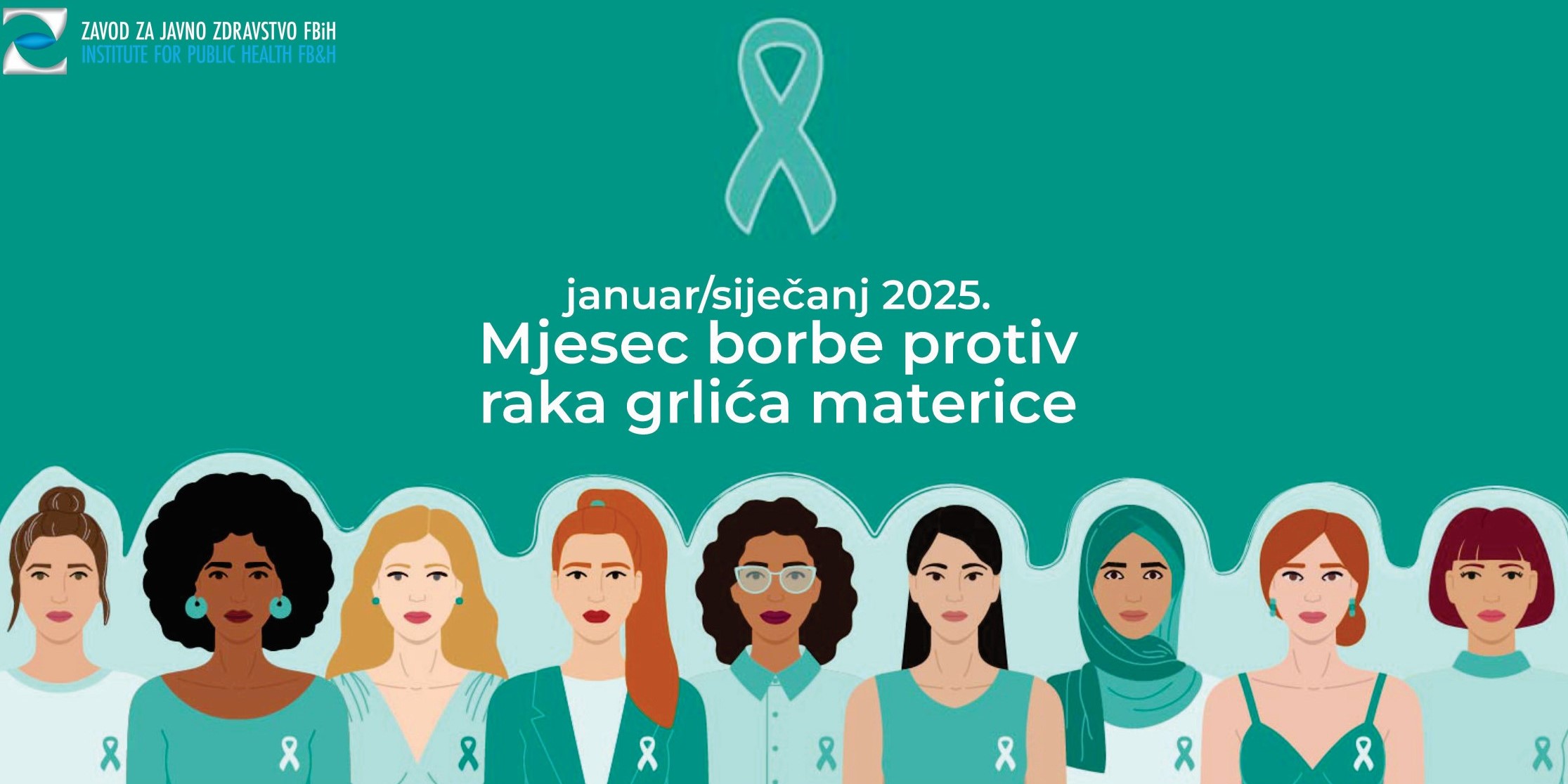From January 20 to 26, 2025, we observe European Cervical Cancer Prevention Week, an initiative aimed at emphasizing the importance of reproductive health and raising public awareness about prevention, education, and HPV vaccination programs.
Cervical cancer is largely preventable, yet it remains a significant health issue. According to public statistics, untreated HPV infection is responsible for 95% of cervical cancer cases. Unfortunately, the highest incidence and mortality rates occur in low- and middle-income countries. This disparity highlights the stark inequalities in access to HPV vaccination programs, cervical cancer screening, and treatment services. These gaps are exacerbated by social and economic factors, including gender bias, poverty, and lack of healthcare infrastructure.
In the Federation of Bosnia and Herzegovina (FBiH), the incidence rate of cervical cancer is on the rise. In 2013, the incidence rate was 3.6 per 10,000 women, increasing to 5.2 per 10,000 women by 2023. Similarly, the mortality rate has worsened, rising from 4.2 per 100,000 women in 2013 to 7.1 per 100,000 women in 2023.
According to Prim. Dr. Adnan Babović, head of the Clinic for Gynecology and Obstetrics at the University Clinical Center Tuzla, 127 new cases of malignant diseases of the female genital system were reported at the clinic in 2023.
“For many years, uterine body cancer has had a higher incidence than cervical cancer, likely due to the preventive measures implemented in our canton. Last year, we diagnosed 41 cases of cervical cancer, 58 cases of uterine body cancer, 19 cases of ovarian cancer, 5 cases of fallopian tube cancer, and 4 cases of vulvar cancer. These statistics from our clinic underscore the importance of primary prevention, health education, and the use of prophylactic vaccines to prevent infections from high-risk human papillomavirus (HPV) types, which can lead to premalignant and invasive cervical lesions,” stated Dr. Babović.
Globally, cervical cancer accounts for approximately 660,000 new cases and 350,000 deaths each year. Recognizing the potential for prevention, the World Health Organization (WHO) adopted the Global Strategy to Accelerate the Elimination of Cervical Cancer in January 2020. This strategy aims to reduce the incidence of cervical cancer to nearly zero, with a target incidence rate of less than 4 per 100,000 women.
To achieve this goal, the strategy emphasizes a high vaccination rate and regular preventive screenings. It aims for at least 90% of girls under 15 to be vaccinated against HPV and 70% of women under 35 to undergo preventive examinations.
In the Federation of Bosnia and Herzegovina, the Institute for Public Health, in collaboration with the Federal Ministry of Health, is actively working on developing the Immunization Program against Human Papillomavirus to align with these global targets.
As part of these initiatives, educational workshops on the introduction of HPV immunization were conducted across all cantons in the Federation of Bosnia and Herzegovina (FBiH). These workshops targeted healthcare workers, particularly those involved in immunization efforts. Additionally, promotional and educational materials were developed and made available in electronic form on the website of the Institute for Public Health of FBiH.
Active prevention programs for cervical and breast cancer are being implemented in three cantons: Zenica-Doboj, Tuzla, and Herzegovina-Neretva. In 2023, a total of 1,678 children in the target age group were vaccinated across FBiH. By November 2024, this number had increased to 3,334 children.







